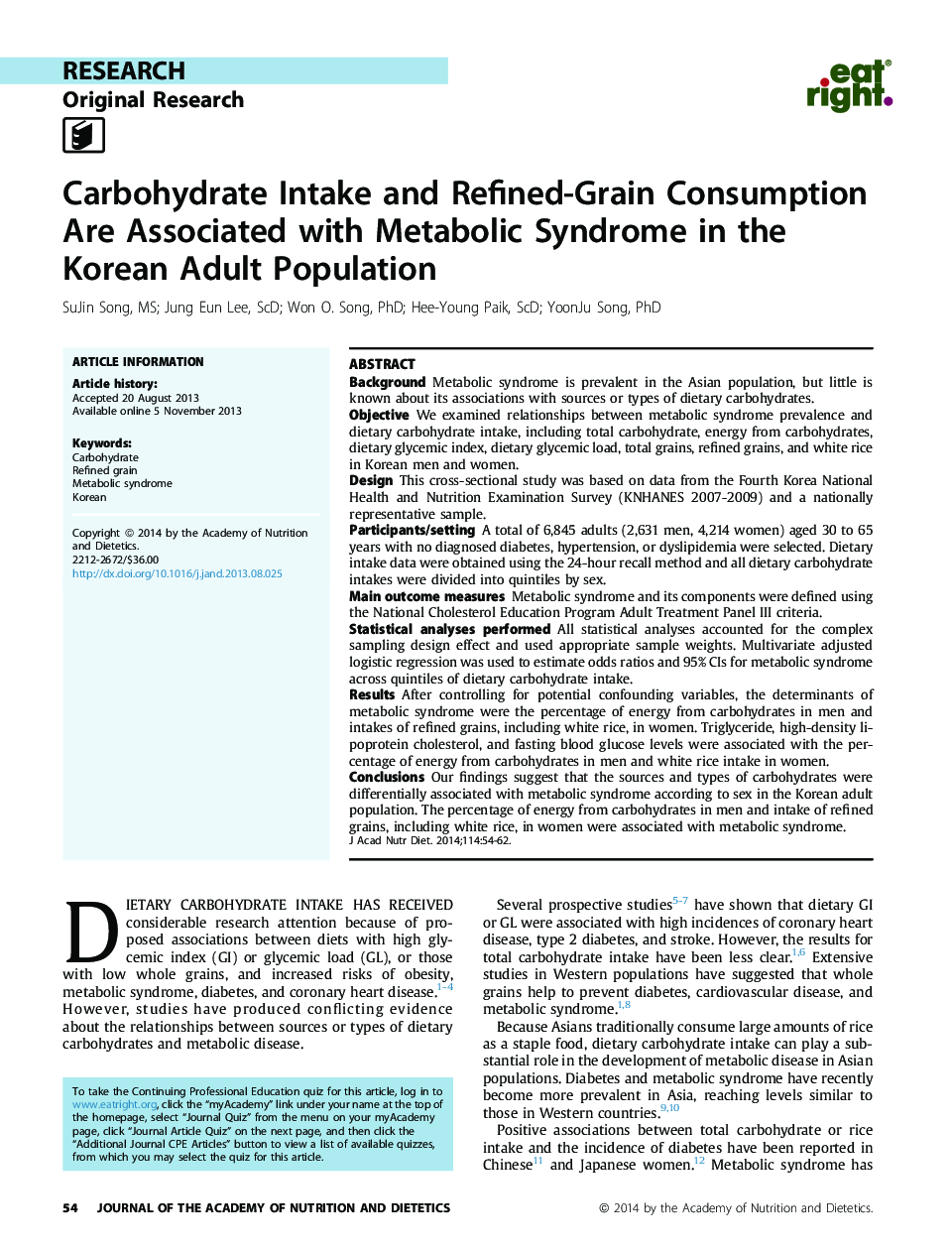| Article ID | Journal | Published Year | Pages | File Type |
|---|---|---|---|---|
| 2653230 | Journal of the Academy of Nutrition and Dietetics | 2014 | 9 Pages |
BackgroundMetabolic syndrome is prevalent in the Asian population, but little is known about its associations with sources or types of dietary carbohydrates.ObjectiveWe examined relationships between metabolic syndrome prevalence and dietary carbohydrate intake, including total carbohydrate, energy from carbohydrates, dietary glycemic index, dietary glycemic load, total grains, refined grains, and white rice in Korean men and women.DesignThis cross-sectional study was based on data from the Fourth Korea National Health and Nutrition Examination Survey (KNHANES 2007-2009) and a nationally representative sample.Participants/settingA total of 6,845 adults (2,631 men, 4,214 women) aged 30 to 65 years with no diagnosed diabetes, hypertension, or dyslipidemia were selected. Dietary intake data were obtained using the 24-hour recall method and all dietary carbohydrate intakes were divided into quintiles by sex.Main outcome measuresMetabolic syndrome and its components were defined using the National Cholesterol Education Program Adult Treatment Panel III criteria.Statistical analyses performedAll statistical analyses accounted for the complex sampling design effect and used appropriate sample weights. Multivariate adjusted logistic regression was used to estimate odds ratios and 95% CIs for metabolic syndrome across quintiles of dietary carbohydrate intake.ResultsAfter controlling for potential confounding variables, the determinants of metabolic syndrome were the percentage of energy from carbohydrates in men and intakes of refined grains, including white rice, in women. Triglyceride, high-density lipoprotein cholesterol, and fasting blood glucose levels were associated with the percentage of energy from carbohydrates in men and white rice intake in women.ConclusionsOur findings suggest that the sources and types of carbohydrates were differentially associated with metabolic syndrome according to sex in the Korean adult population. The percentage of energy from carbohydrates in men and intake of refined grains, including white rice, in women were associated with metabolic syndrome.
